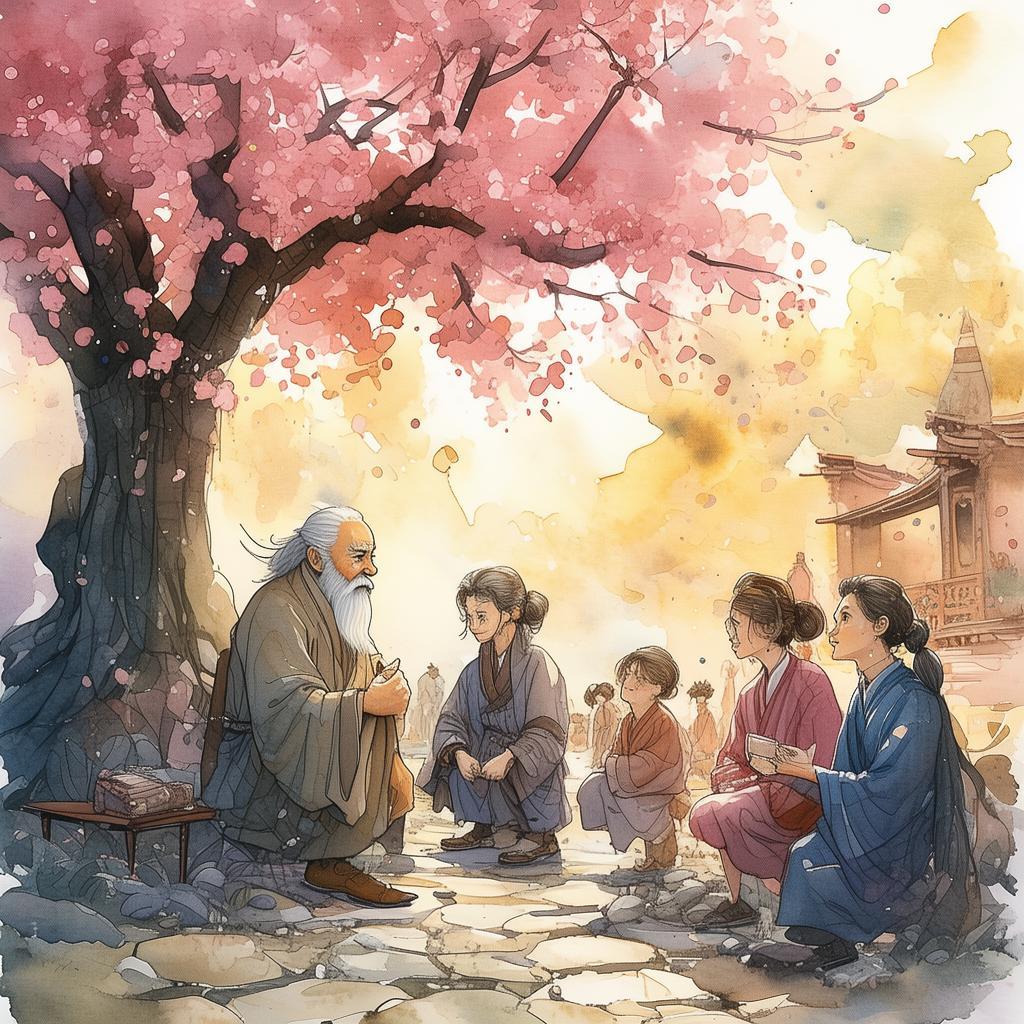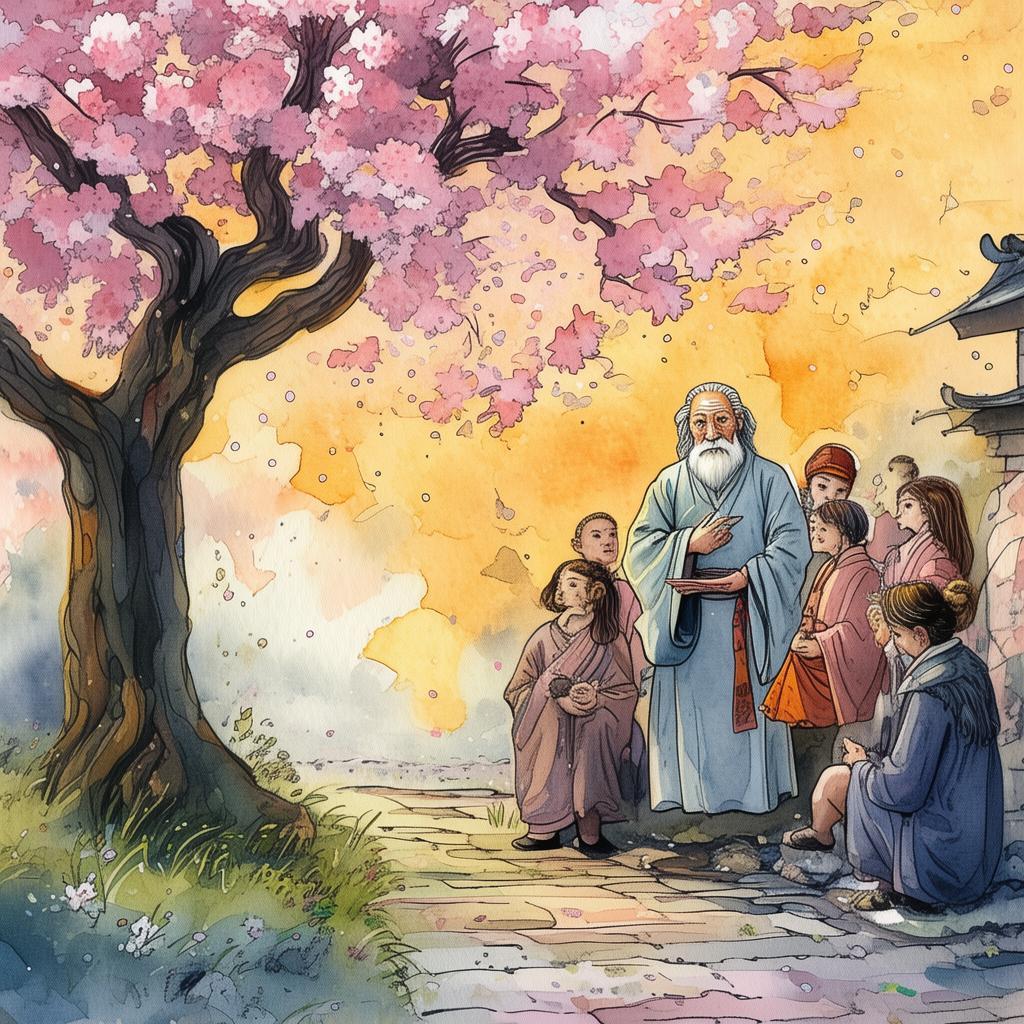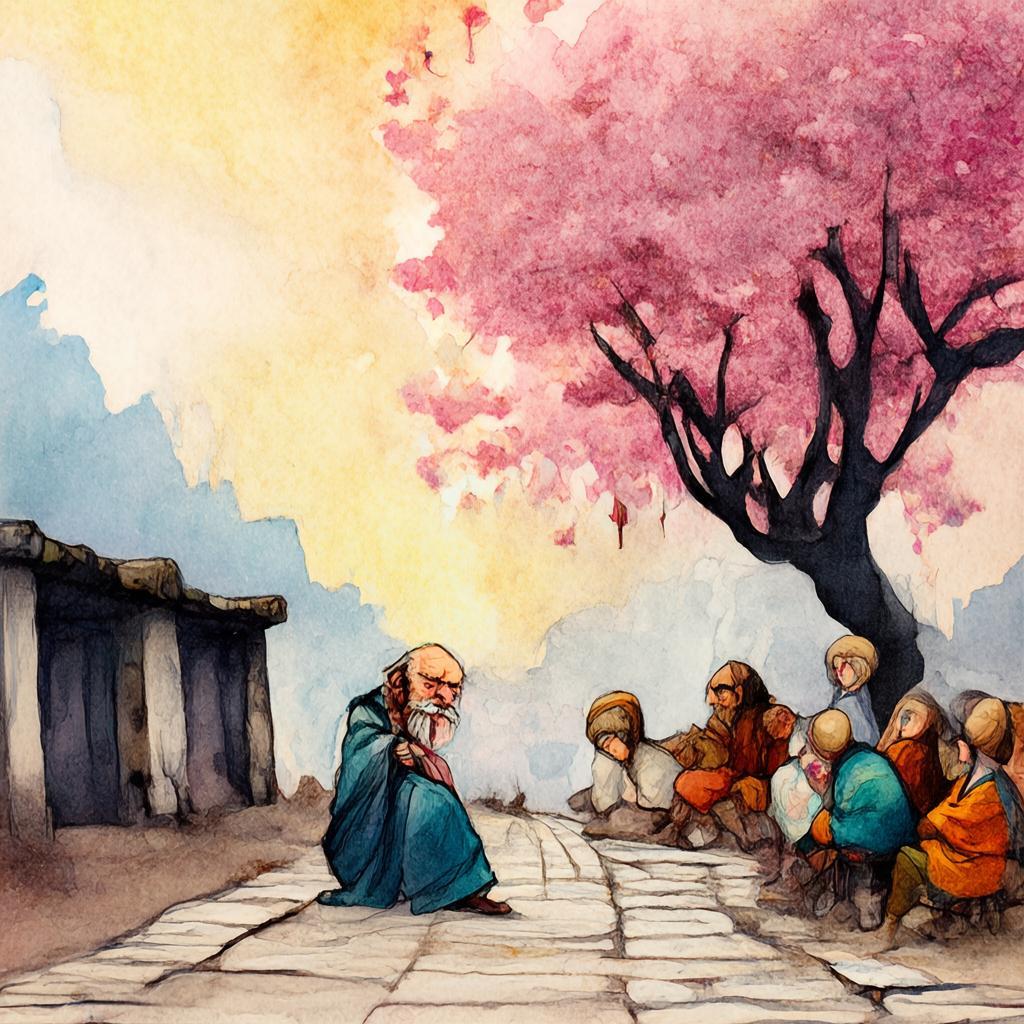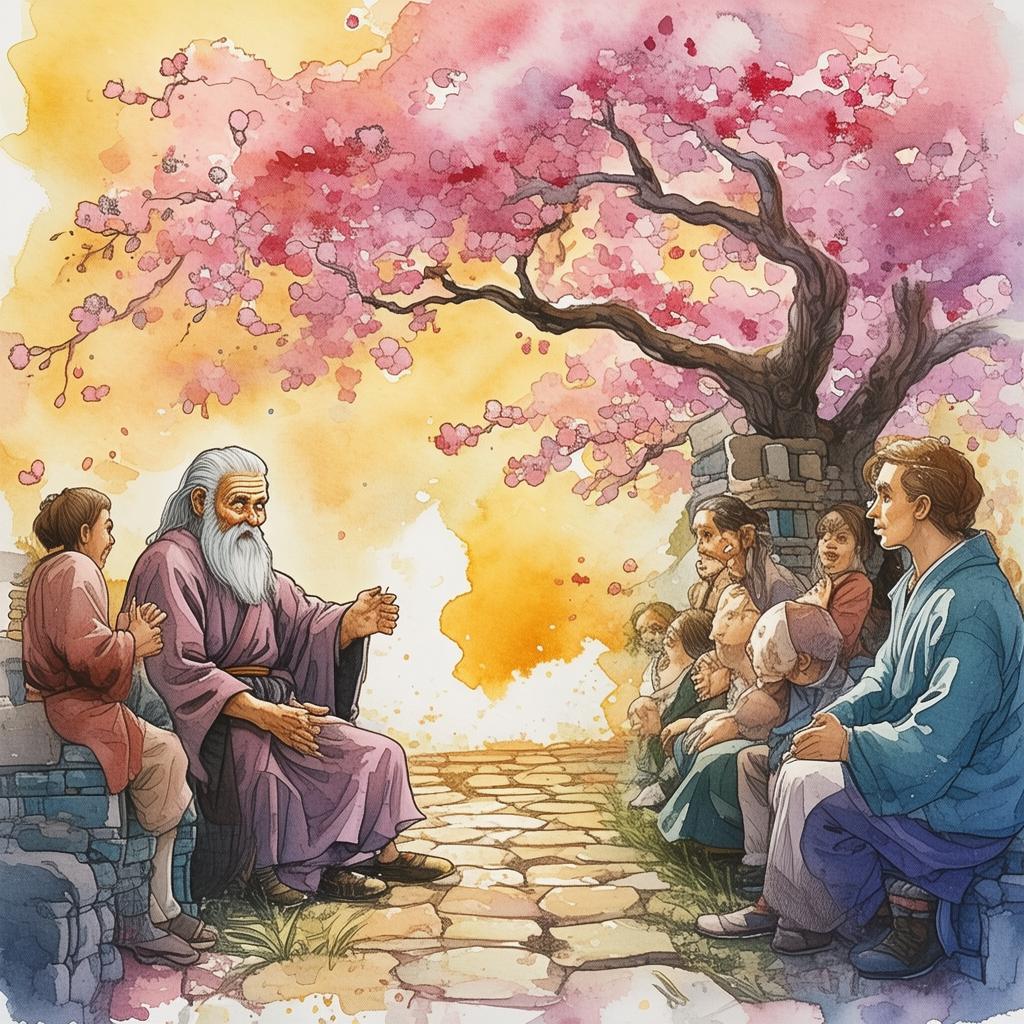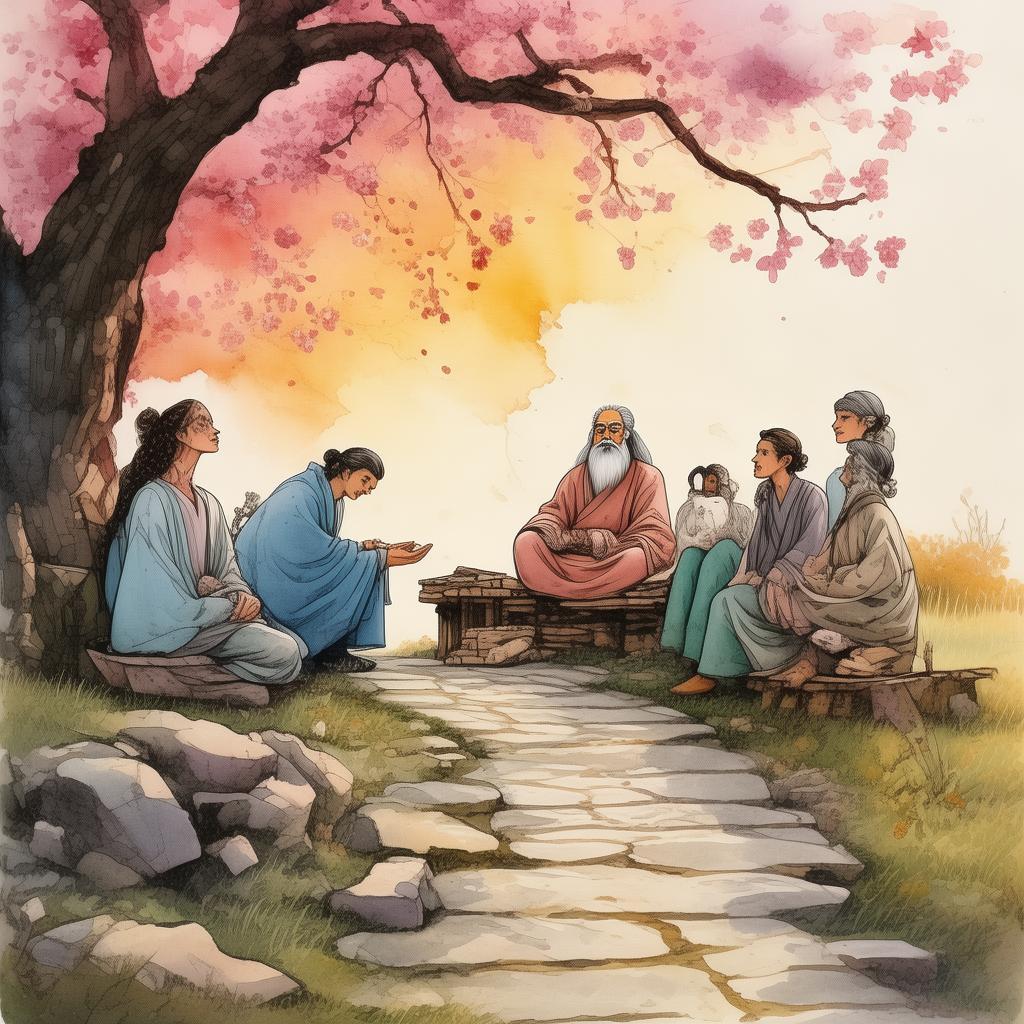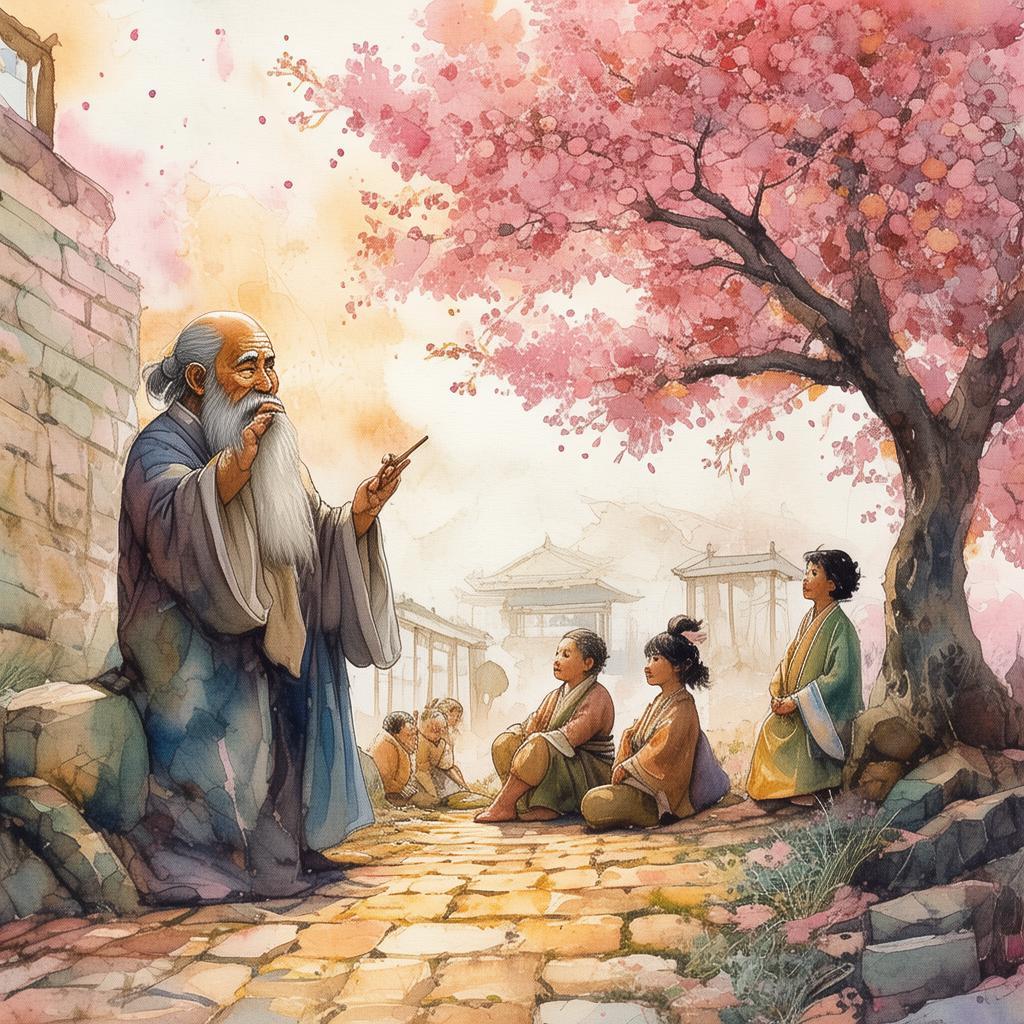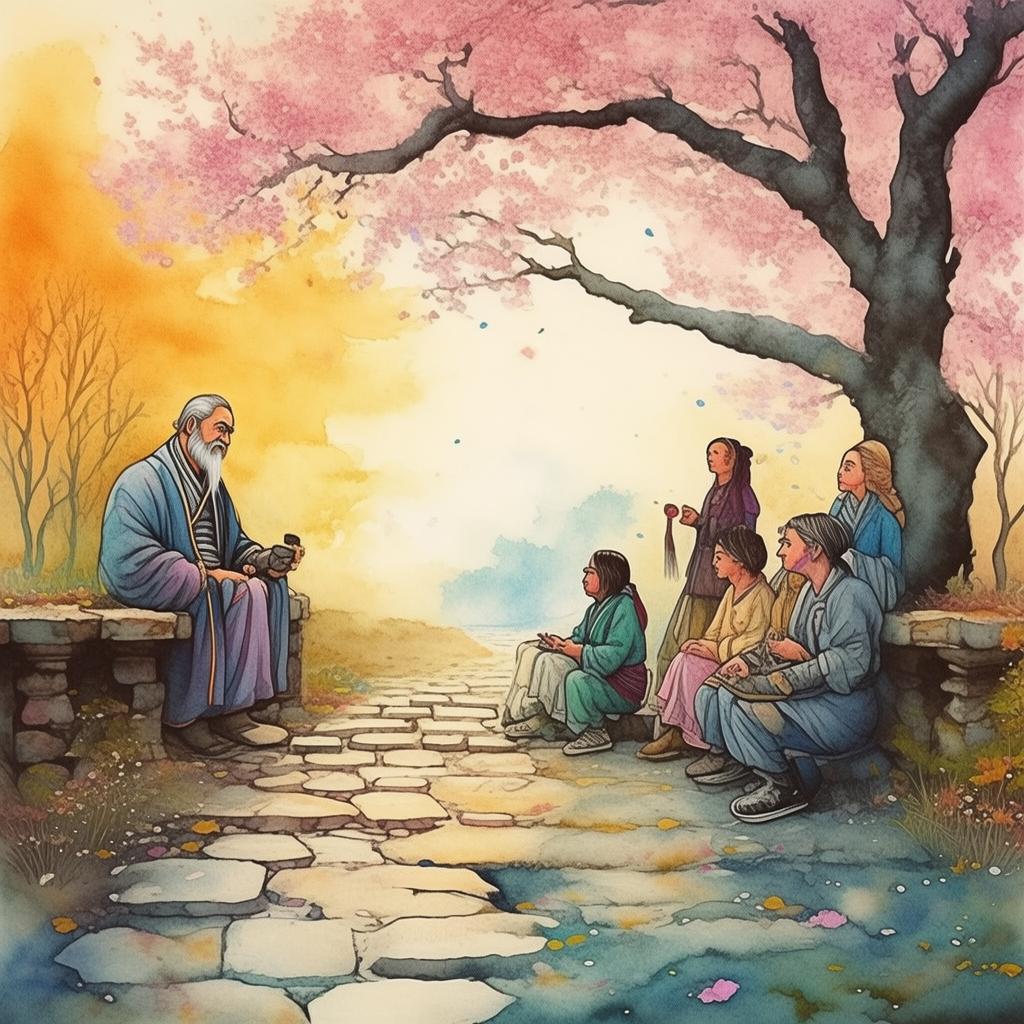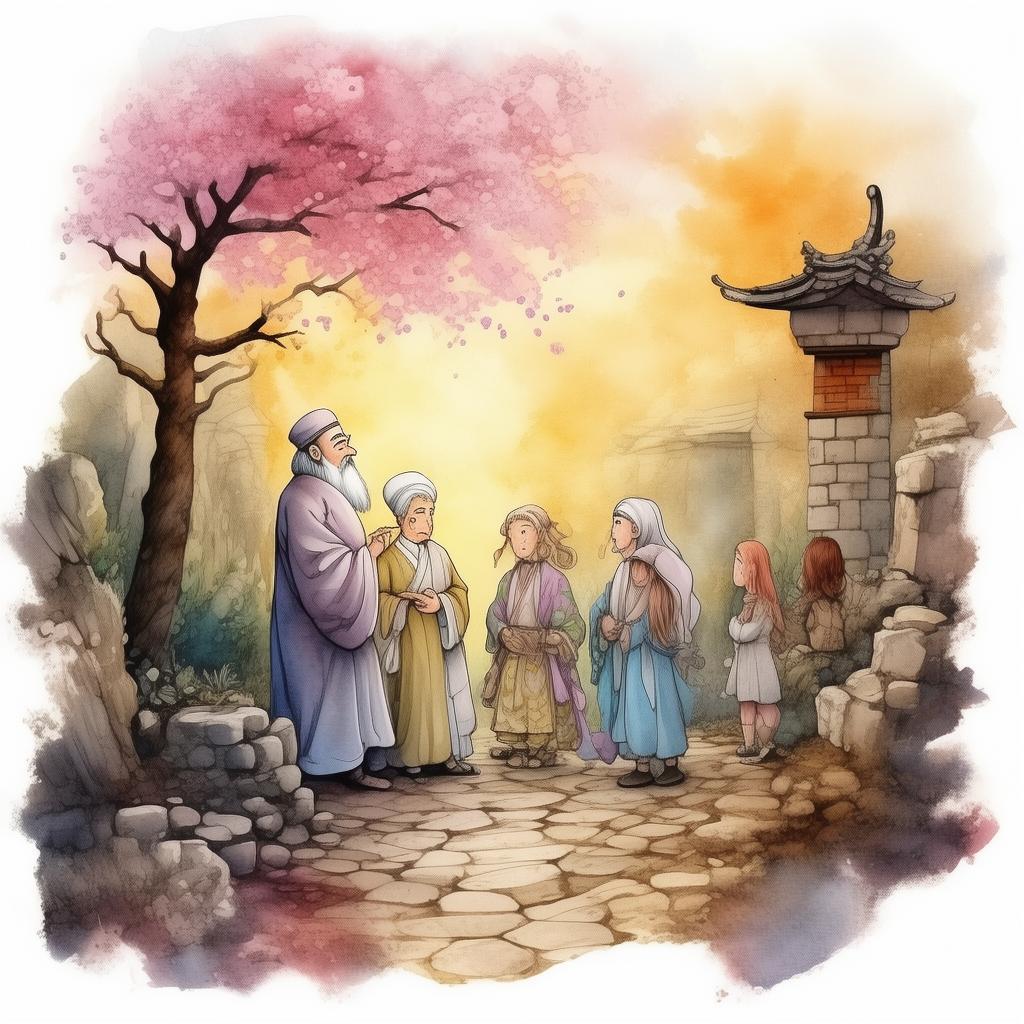The Phantom Throne: A Ruler's Falsehood
In the ancient kingdom of Jing, the throne was a beacon of power and authority. The current ruler, Emperor Jing, was known for his cunning and intelligence, which had helped him ascend to the throne after a series of tumultuous events. His rule was marked by a reign of terror, as he eliminated any who dared to challenge his authority. Yet, beneath the surface, a web of intrigue and deceit was slowly unraveling.
The story begins with a mysterious visitor to the palace, a scholar named Zhen, who claims to have a secret that could change the fate of the kingdom. Emperor Jing, intrigued by the possibility of bolstering his power, invites Zhen to the palace. Little does he know that Zhen's arrival marks the beginning of a series of events that will shake the very foundations of his rule.
As Zhen reveals his secret, he speaks of a mythical artifact, the Phantom Throne, said to grant its possessor the power to control the minds of others. Emperor Jing, seeing this as a means to solidify his power, demands that Zhen retrieve the artifact for him. Zhen, however, is not who he seems to be.
Zhen is actually a spy sent by a rival kingdom, intent on undermining Emperor Jing's rule. He has been gathering information on the emperor's inner circle, hoping to exploit their weaknesses. The Phantom Throne is just a ruse to gain the trust of the emperor and his closest advisors.
Emperor Jing, unaware of Zhen's true intentions, begins to act erratically, suspecting that his closest advisors are plotting against him. He starts to surround himself with loyalists, eliminating anyone who might challenge his authority. The kingdom becomes a place of fear and paranoia, as the emperor's trust in his advisors and the people around him erodes.
In the midst of this chaos, a young nobleman named Feng discovers the truth about Zhen and the Phantom Throne. Feng, who has always been loyal to Emperor Jing, realizes that the kingdom is on the brink of civil war. He decides to act, hoping to prevent the empire from falling apart.
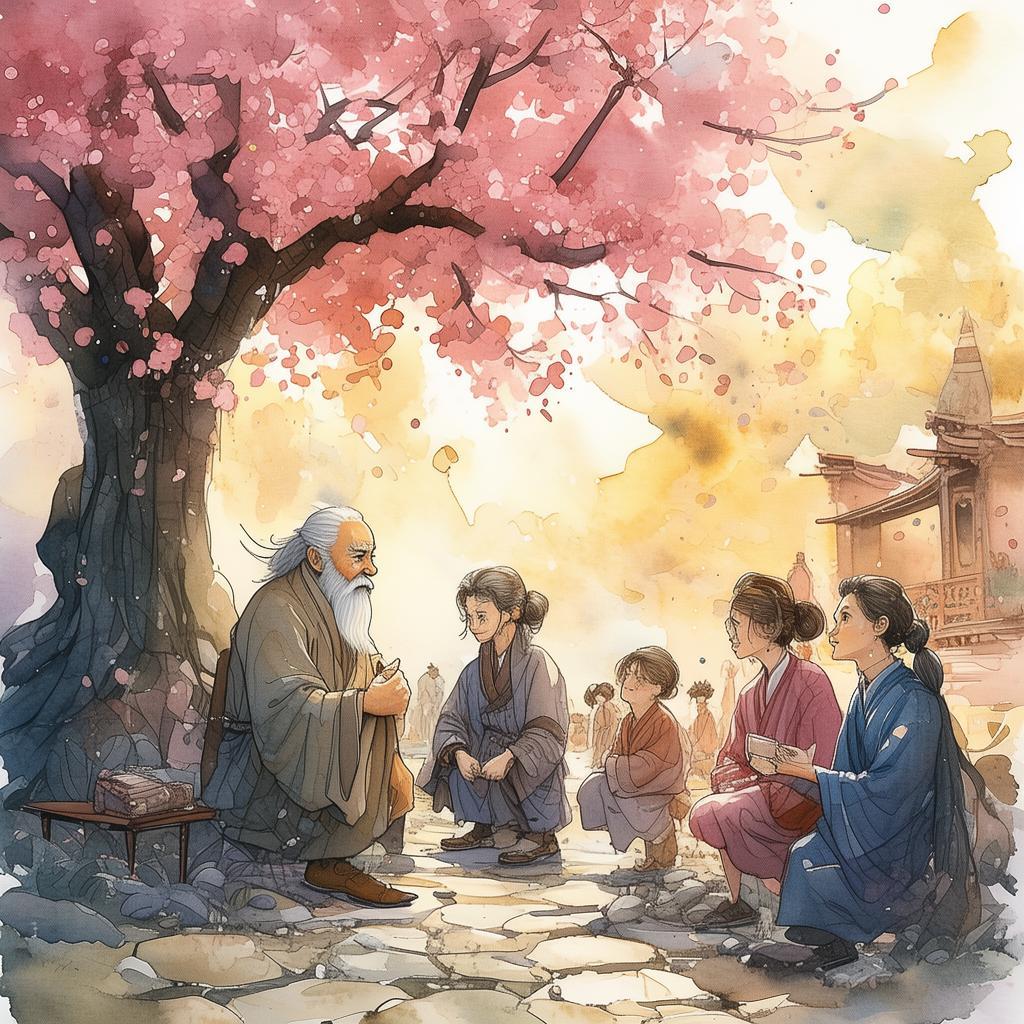
Feng approaches the emperor, presenting him with evidence that Zhen is a spy. Emperor Jing, however, is so consumed by his paranoia that he refuses to believe Feng. Instead, he orders Feng's execution, believing that his closest advisors are also plotting against him.
As Feng is led away to his death, he is joined by a group of loyalists who have been watching the events unfold. They have seen the emperor's descent into madness and are determined to save the kingdom. Together, they stage a daring rescue, freeing Feng from his executioner.
With Feng's help, the loyalists plot to remove Emperor Jing from power and restore order to the kingdom. They gather evidence of the emperor's tyranny and the false claims of the Phantom Throne. As the time for their plan approaches, they must navigate the treacherous waters of the palace, avoiding the watchful eyes of the emperor's loyalists.
The climax of the story comes when the loyalists confront Emperor Jing in the throne room, presenting him with the evidence. The emperor, faced with the truth, is forced to confront his actions and the cost of his power. In a dramatic turn of events, the emperor is stripped of his throne and exiled to a distant province.
The kingdom is then ruled by a council of advisors, who work to restore peace and stability. Feng is named the new ruler, vowing to lead the kingdom with justice and compassion. The Phantom Throne, revealed to be a mere myth, is locked away, never to be seen again.
The story concludes with the kingdom thriving under Feng's rule, a testament to the power of truth and the courage of those who stood against tyranny. The legacy of Emperor Jing is remembered as a cautionary tale, a reminder of the dangers of unchecked power and the importance of trust in one's advisors and the people.
In the end, the kingdom of Jing is saved, and the Phantom Throne remains a symbol of the deception that nearly brought it to its knees. The story of The Phantom Throne: A Ruler's Falsehood serves as a warning against the corrupting influence of power and the importance of truth and loyalty.
✨ Original Statement ✨
All articles published on this website (including but not limited to text, images, videos, and other content) are original or authorized for reposting and are protected by relevant laws. Without the explicit written permission of this website, no individual or organization may copy, modify, repost, or use the content for commercial purposes.
If you need to quote or cooperate, please contact this site for authorization. We reserve the right to pursue legal responsibility for any unauthorized use.
Hereby declared.
